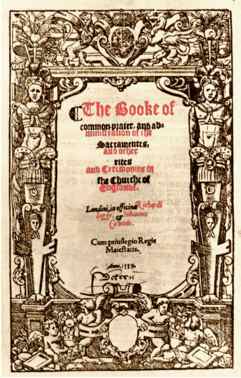Brimstone for the broad-minded.
by Tim Keller
The young man in my office was impeccably dressed and articulate. He was an Ivy League MBA, successful in the financial world, and had lived in three countries before age 30. Raised in a family with only the loosest connections to a mainline church, he had little understanding of Christianity.
I was therefore gratified to learn of his intense spiritual interest, recently piqued as he attended our church. He said he was ready to embrace the gospel. But there was a final obstacle.
"You've said that if we do not believe in Christ," he said, "we are lost and condemned. I'm sorry, I just cannot buy that. I work with some fine people who are Muslim, Jewish, or agnostic. I cannot believe they are going to hell just because they don't believe in Jesus. In fact, I cannot reconcile the very idea of hell with a loving God—even if he is holy too."
This young man expressed what may be the main objection contemporary secular people make to the Christian message. (A close second, in my experience, is the problem of suffering and evil.) Moderns reject the idea of final judgment and hell.
Thus, it's tempting to avoid such topics in our preaching. But neglecting the unpleasant doctrines of the historic faith will bring about counter-intuitive consequences. There is an ecological balance to scriptural truth that must not be disturbed.
If an area is rid of its predatory or undesirable animals, the balance of that environment may be so upset that the desirable plants and animals are lost—through overbreeding with a limited food supply. The nasty predator that was eliminated actually kept in balance the number of other animals and plants necessary to that particular ecosystem. In the same way, if we play down "bad" or harsh doctrines within the historic Christian faith, we will find, to our shock, that we have gutted all our pleasant and comfortable beliefs, too.
The loss of the doctrine of hell and judgment and the holiness of God does irreparable damage to our deepest comforts—our understanding of God's grace and love and of our human dignity and value to him. To preach the good news, we must preach the bad.
But in this age of tolerance, how?
How to preach hell to traditionalistsBefore preaching on the subject of hell, I must recognize that today, a congregation is made up of two groups: traditionalists and postmoderns. The two hear the message of hell completely differently.
People from traditional cultures and mindsets tend to have (a) a belief in God, and (b) a strong sense of moral absolutes and the obligation to be good. These people tend to be older, from strong Catholic or religious Jewish backgrounds, from conservative evangelical/Pentecostal Protestant backgrounds, from the southern U.S., and first-generation immigrants from non-European countries.
The way to show traditional persons their need for the gospel is by saying, "Your sin separates you from God! You can't be righteous enough for him." Imperfection is the duty-worshiper's horror. Traditionalists are motivated toward God by the idea of punishment in hell. They sense the seriousness of sin.
But traditionalists may respond to the gospel only out of fear of hell, unless I show them Jesus experienced not only pain in general on the cross but hell in particular. This must be held up until they are attracted to Christ for the beauty of the costly love of what he did. To the traditional person, hell must be preached as the only way to know how much Christ loved you.
Here is one way I have preached this:
"Unless we come to grips with this terrible doctrine, we will never even begin to understand the depths of what Jesus did for us on the cross. His body was being destroyed in the worst possible way, but that was a flea bite compared to what was happening to his soul. When he cried out that his God had forsaken him, he was experiencing hell itself.
"If a mild acquaintance denounces you and rejects you—that hurts. If a good friend does the same—the hurt's far worse. However, if your spouse walks out on you, saying, 'I never want to see you again,' that is far more devastating still. The longer, deeper, and more intimate the relationship, the more torturous is any separation.
"But the Son's relationship with the Father was beginning-less and infinitely greater than the most intimate and passionate human relationship. When Jesus was cut off from God, he went into the deepest pit and most powerful furnace, beyond all imagining. And he did it voluntarily, for us."
How to preach hell to postmodernsIn contrast to the traditionalist, the postmodern person is hostile to the very idea of hell. People with more secular and postmodern mindsets tend to have (a) only a vague belief in the divine, if at all, and (b) little sense of moral absolutes, but rather a sense they need to be true to their dreams. They tend to be younger, from nominal Catholic or non-religious Jewish backgrounds, from liberal mainline Protestant backgrounds, from the western and northeastern U. S., and Europeans.
When preaching hell to people of this mindset, I've found I must make four arguments.
1. Sin is slavery. I do not define sin as just breaking the rules, but also as "making something besides God our ultimate value and worth." These good things, which become gods, will drive us relentlessly, enslaving us mentally and spiritually, even to hell forever if we let them.
I say, "You are actually being religious, though you don't know it—you are trying to find salvation through worshiping things that end up controlling you in a destructive way." Slavery is the choice-worshiper's horror.
C. S. Lewis's depictions of hell are important for postmodern people. In The Great Divorce, Lewis describes a busload of people from hell who come to the outskirts of heaven. There they are urged to leave behind the sins that have trapped them in hell. The descriptions Lewis makes of people in hell are so striking because we recognize the denial and self-delusion of substance addictions. When addicted to alcohol, we are miserable, but we blame others and pity ourselves; we do not take responsibility for our behavior nor see the roots of our problem.
Lewis writes, "Hell … begins with a grumbling mood, and yourself still distinct from it: perhaps even criticizing it. … You can repent and come out of it again. But there may come a day when you can do that no longer. Then there will be no you left to criticize the mood or even enjoy it, but just the grumble itself going on forever like a machine."
Modern people struggle with the idea of God thinking up punishments to inflict on disobedient people. When sin is seen as slavery, and hell as the freely chosen, eternal skid row of the universe, hell becomes much more comprehensible.
Here is an example from a recent sermon of how I try to explain this:
"First, sin separates us from the presence of God (Isa. 59:2), which is the source of all joy (Ps. 16:11), love, wisdom, or good thing of any sort (James 1:17) . …
"Second, to understand hell we must understand sin as slavery. Romans 1:21-25 tells us that we were built to live for God supremely, but instead we live for love, work, achievement, or morality to give us meaning and worth. Thus every person, religious or not, is worshiping something—idols, pseudo-saviors—to get their worth. But these things enslave us with guilt (if we fail to attain them) or anger (if someone blocks them from us) or fear (if they are threatened) or drivenness (since we must have them). Guilt, anger, and fear are like fire that destroys us. Sin is worshiping anything but Jesus—and the wages of sin is slavery."
Perhaps the greatest paradox of all is that the people on Lewis's bus from hell are enslaved because they freely choose to be. They would rather have their freedom (as they define it) than salvation. Their relentless delusion is that if they glorified God, they would lose their human greatness (Gen. 3:4-5), but their choice has really ruined their human greatness. Hell is, as Lewis says, "the greatest monument to human freedom."
2. Hell is less exclusive than so-called tolerance. Nothing is more characteristic of the modern mindset than the statement: "I think Christ is fine, but I believe a devout Muslim or Buddhist or even a good atheist will certainly find God." A slightly different version is: "I don't think God would send a person who lives a good life to hell just for holding the wrong belief." This approach is seen as more inclusive.
In preaching about hell, then, I need to counter this argument:
"The universal religion of humankind is: We develop a good record and give it to God, and then he owes us. The gospel is: God develops a good record and gives it to us, then we owe him (Rom. 1:17). In short, to say a good person, not just Christians, can find God is to say good works are enough to find God.
"You can believe that faith in Christ is not necessary or you can believe that we are saved by grace, but you cannot believe in both at once.
"So the apparently inclusive approach is really quite exclusive. It says, 'The good people can find God, and the bad people do not.'
"But what about us moral failures? We are excluded.
"The gospel says, 'The people who know they aren't good can find God, and the people who think they are good do not.'
"Then what about non-Christians, all of whom must, by definition, believe their moral efforts help them reach God? They are excluded.
"So both approaches are exclusive, but the gospel's is the more inclusive exclusivity. It says joyfully, 'It doesn't matter who you are or what you've done. It doesn't matter if you've been at the gates of hell. You can be welcomed and embraced fully and instantly through Christ.' "
3. Christianity's view of hell is more personal than the alternative view. Fairly often, I meet people who say, "I have a personal relationship with a loving God, and yet I don't believe in Jesus Christ at all."
"Why?" I ask.
They reply, "My God is too loving to pour out infinite suffering on anyone for sin."
But then a question remains: "What did it cost this kind of God to love us and embrace us? What did he endure in order to receive us? Where did this God agonize, cry out? Where were his nails and thorns?"
The only answer is: "I don't think that was necessary."
How ironic. In our effort to make God more loving, we have made God less loving. His love, in the end, needed to take no action. It was sentimentality, not love at all. The worship of a God like this will be impersonal, cognitive, ethical. There will be no joyful self-abandonment, no humble boldness, no constant sense of wonder. We would not sing to such a being, "Love so amazing, so divine, demands my soul, my life, my all."
The postmodern "sensitive" approach to the subject of hell is actually quite impersonal. It says, "It doesn't matter if you believe in the person of Christ, as long as you follow his example."
But to say that is to say the essence of religion is intellectual and ethical, not personal. If any good person can find God, then the essential core of religion is understanding and following the rules.
When preaching about hell, I try to show how impersonal this view is:
"To say that any good person can find God is to create a religion without tears, without experience, without contact.
"The gospel certainly is not less than the understanding of truths and principles, but it is infinitely more. The essence of salvation is knowing a Person (John 17:3). As with knowing any person, there is repenting and weeping and rejoicing and encountering. The gospel calls us to a wildly passionate, intimate love relationship with Jesus Christ, and calls that 'the core of true salvation.' "
4. There is no love without wrath. What rankles people is the idea of judgment and the wrath of God: "I can't believe in a God who sends people to suffer eternally. What kind of loving God is filled with wrath?"
So in preaching about hell, we must explain that a wrathless God cannot be a loving God. Here's how I tried to do that in one sermon:
"People ask, 'What kind of loving God is filled with wrath?' But any loving person is often filled with wrath. In Hope Has Its Reasons, Becky Pippert writes, 'Think how we feel when we see someone we love ravaged by unwise actions or relationships. Do we respond with benign tolerance as we might toward strangers? Far from it. … Anger isn't the opposite of love. Hate is, and the final form of hate is indifference.'
"Pippert then quotes E. H. Gifford, 'Human love here offers a true analogy: the more a father loves his son, the more he hates in him the drunkard, the liar, the traitor.'
"She concludes: 'If I, a flawed narcissistic sinful woman, can feel this much pain and anger over someone's condition, how much more a morally perfect God who made them? God's wrath is not a cranky explosion, but his settled opposition to the cancer of sin which is eating out the insides of the human race he loves with his whole being.' "
A God like thisFollowing a recent sermon on the Parable of Lazarus and the Rich Man, the post-service question-and-answer session was packed with more than the usual number of attenders. The questions and comments focused on the subject of eternal judgment.
My heart sank when a young college student said, "I've gone to church all my life, but I don't think I can believe in a God like this." Her tone was more sad than defiant, but her willingness to stay and talk showed that her mind was open.
Usually all the questions are pitched to me, and I respond as best I can. But on this occasion people began answering one another.
An older businesswoman said, "Well, I'm not much of a churchgoer, and I'm in some shock now. I always disliked the very idea of hell, but I never thought about it as a measure of what God was willing to endure in order to love me."
Then a mature Christian made a connection with a sermon a month ago on Jesus at Lazarus' tomb in John 11. "The text tells us that Jesus wept," he said, "yet he was also extremely angry at evil. That's helped me. He is not just an angry God or a weeping, loving God—he's both. He doesn't only judge evil, but he also takes the hell and judgment himself for us on the cross."
The second woman nodded, "Yes. I always thought hell told me about how angry God was with us, but I didn't know it also told me about how much he was willing to suffer and weep for us. I never knew how much hell told me about Jesus' love. It's very moving."
It is only because of the doctrine of judgment and hell that Jesus' proclamation of grace and love are so brilliant and astounding.
Tim Keller is pastor of Redeemer Presbyterian Church in New York City.
Originally published in Leadership journal, October 1, 1997.
Copyright © 1997 by the author or Christianity Today International/Leadership Journal.
For more on Hell from Tim Keller, go here.

 Did the Westminster Assembly violates it's own guidance when they tossed The Book of Common Prayer out the window (a form of thoroughly biblical form of worship established under legitimate ecclesiastical and civil authority)? Where was the "Christian liberty?" Was it done to build up the people?
Did the Westminster Assembly violates it's own guidance when they tossed The Book of Common Prayer out the window (a form of thoroughly biblical form of worship established under legitimate ecclesiastical and civil authority)? Where was the "Christian liberty?" Was it done to build up the people?




















